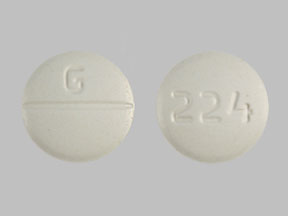
Lithium Carbonate ER Coupons & Savings Card – Discount Prices from $13.32
Generic for: Lithobid
This medication is used to treat manic-depressive disorder (bipolar disorder). It works to stabilize the mood and reduce extremes in behavior by restoring the balance of certain natural substances (neurotransmitters) in the brain. Some of the benefits of continued use of this medication include decreasing how often manic episodes occur and decreasing the symptoms of manic episodes such as exaggerated feelings of well-being, feelings that others wish to harm you, irritability, anxiousness, rapid/loud speech, and aggressive/hostile behaviors.
Our coupons are free to use. Before paying, show the pharmacist your Lithium Carbonate ER savings card to get your free discount. Use our filters below to edit the prescription box to match your needs. The Lithium Carbonate ER prices will update based on your prescription needs. Above our Lithium Carbonate ER coupons, you can change your location to see pharmacy prices and costs in other areas. We're here to help you buy Lithium Carbonate ER at the lowest price with our prescription discount card.
My prescription
Edit
450MG, Lithium Carbonate ER (60 Tablet Extended Releases)
Select pharmacy

CVS
$28.76
COUPON PRICE
Albertsons
$13.32
COUPON PRICE
Walgreens
$13.50
COUPON PRICE
Walmart
$26.10
COUPON PRICELithium Carbonate ER savings card
Show this card to your pharmacist
Albertsons
$13.32
BIN
ID
PCN
GRP
011867
LH36367C94
HT
LABH001
Powered by
This medication is used to treat manic-depressive disorder (bipolar disorder). It works to stabilize the mood and reduce extremes in behavior by restoring the balance of certain natural substances (neurotransmitters) in the brain. Some of the benefits of continued use of this medication include decreasing how often manic episodes occur and decreasing the symptoms of manic episodes such as exaggerated feelings of well-being, feelings that others wish to harm you, irritability, anxiousness, rapid/loud speech, and aggressive/hostile behaviors.
Our coupons are free to use. Before paying, show the pharmacist your Lithium Carbonate ER savings card to get your free discount. Use our filters below to edit the prescription box to match your needs. The Lithium Carbonate ER prices will update based on your prescription needs. Above our Lithium Carbonate ER coupons, you can change your location to see pharmacy prices and costs in other areas. We're here to help you buy Lithium Carbonate ER at the lowest price with our prescription discount card.
